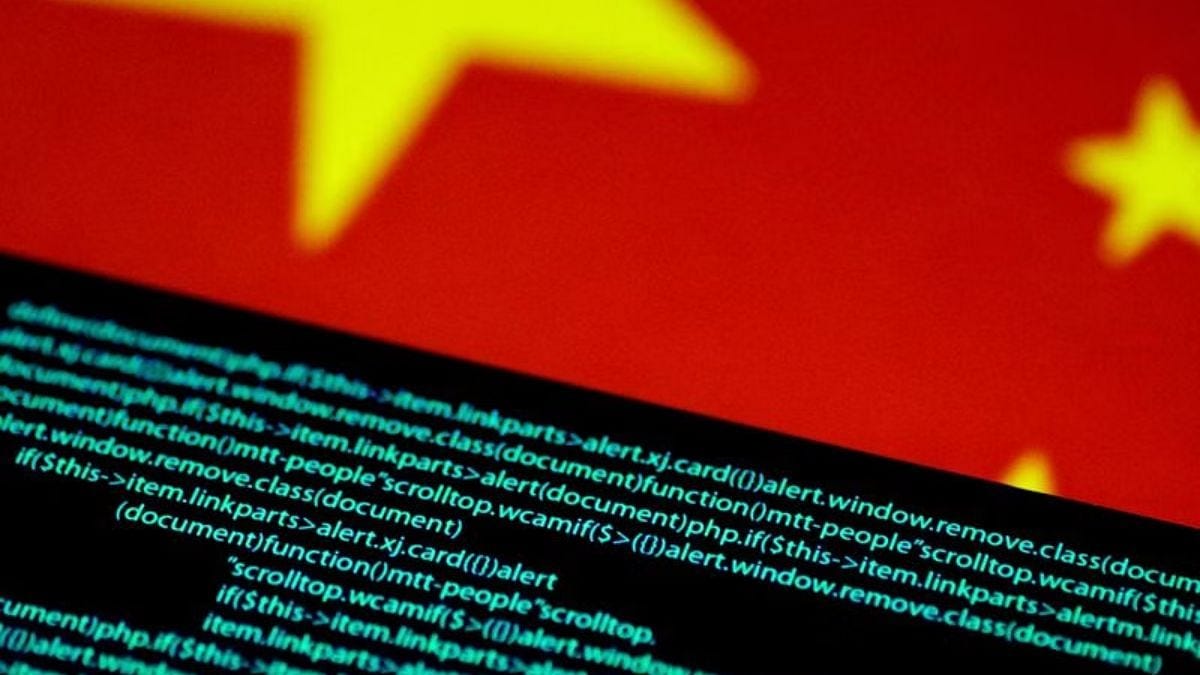China's AI Aspirations
China wants to be next AI superpower. It’s already talking military applications with Russia, China willing to join global efforts on AI ethics, governance
UPDATES:The world is grappling with the extensive application and misuse of Artificial Intelligence-based tools, which have become a new focal point for global cooperation and competition. China, like other major players, is vying to cement its status as an AI superpower, actively working to secure a prominent position in emerging technologies.
China is willing to participate in global efforts to promote the ethics and governance of artificial intelligence so that it will benefit all mankind, a Chinese representative to a United Nations forum said on Monday.
Representational image | Reuters
China wants to be next AI superpower. It’s already talking military applications with Russia
By SANA HASHMI, ThePrint
The world is grappling with the extensive application and misuse of Artificial Intelligence-based tools, which have become a new focal point for global cooperation and competition. China, like other major players, is vying to cement its status as an AI superpower, actively working to secure a prominent position in emerging technologies.
The country has allocated ample resources to AI research and development. A majority of publications in the field originate from Chinese institutions.The percentage of AI research papers coming from China has seen a notable surge, climbing from 4.26 per cent (1,086 papers) in 1997 to 27.68 per cent in 2017 (37,343 papers). Now, almost half of the world’s 36,000 AI companies are in either China or the US.
Beijing has dedicated significant funds to this endeavour, with an anticipated investment of $38 billion by 2027. Additionally, according to IDC’s Forecast, China’s AI market is projected to exceed $26 billion by 2026. Moreover, just last week, China’s Taiyuan Satellite Launch Center propelled the world’s first in-orbit AI commercial hypersatellite, aboard the Smart Dragon-3 (SD-3) carrier rocket.
Roadblocks in China’s AI-development
Despite substantial investments and resource allocations in its AI mission, China is grappling with a host of challenges. Foremost among these are the US’ export restrictions on advanced memory chips and limitations on technology transfer to China, prompting the country to seek domestic solutions. These bans are widely interpreted by most Chinese social media users as efforts to constrain China’stechnological advancement.
Its problems go beyond US regulatory constraints, though. China’s own imposition of bans on Western search engines and social media platforms propelled it toward self-reliance, driving the development of indigenous technologies and software. Notably, Baidu introduced a localised version of ChatGPT, named ERNIE (Enhanced Representation Through Knowledge Integration) Bot, accessible solely through registration with a Chinese phone number and currently available exclusively in Chinese language. Nonetheless, people are expressing dissatisfaction with ERNIE’S quality, frequently comparing it with the ‘superior’ ChatGPT.
The proliferation of unverified texts and deepfakes originating from Chinese sources poses significant challenges for countries lacking access to and knowledge of Chinese AI technologies. Additionally, the lack of transparency and understanding regarding these technologies may further exacerbate concerns about the dissemination of inaccurate or misleading content, ultimately bolstering China’s influence operations and limiting the ability of other countries to counter potential misinformation effectively.
Besides, Beijing’s deployment of AI for military purposes raises substantial concerns among the US and other major stakeholders. The considerable investments by China’s military and defence industries in robotics, swarming techniques, and other AI applications have the potential to significantly alter the military balance in China’s favour.
In addition to advancing its own AI technologies, China actively seeks collaborations with countries like Russia. Consultations between China and Russia on military AI applications are intensifying. Beijing’s prioritisation of AI integration into its military strategy further complicates ongoing discussions about AI regulations and governance, adding a new dimension to the competition between the US and China.
Can China lead AI governance?
Surprisingly, China is proactively crafting regulations to govern AI, demonstrating a willingness to engage in international cooperation on this front. Last year marked a significant milestone as China became one of the first countries to enact legislation specifically targeting generative AI.
On 23 May 2023, during the 12th Meeting of the Cyberspace Administration of China, the Interim Measures for the Management of Generative Artificial Intelligence Service were adopted. These measures mandate that generative AI systems must “adhere to core socialist values and refrain from inciting subversion of state power or overthrowing the socialist system.”
Additionally, at the AI Safety Summit in the UK last November, China pledged to collaborate with several countries – including the US, the United Kingdom, Brazil, India, and Saudi Arabia – which was outlined in a joint communiqueaimed at ensuring the safety and responsible development of AI technologies.
Despite promising initial strides, there remains a concern that, as the risks of AI become more apparent, China could potentially weaponise AI capabilities and disengage from collaborative efforts, echoing its stance on climate change.
Engaging in dialogue and cooperation with key players will not only demonstrate China’s commitment as a responsible stakeholder but also acknowledge the importance of addressing ethical and safety concerns in AI development. However, the future trajectory of China’s AI policies depends on the concessions it receives from the US and its allies, as well as on whether the geopolitical landscape shifts in its favour.
Read more.
China's Vice Minister of Education Wang Jiayi speaks at the second Global Forum on the Ethics of AI in Kranj, Slovenia, Feb. 5, 2024. The Second Global Forum on the Ethics of AI, a two-day event sponsored by the UN Educational, Scientific and Cultural Organization (UNESCO) started on Monday in the Slovenian city of Kranj. (Photo by Zeljko Stevanic/Xinhua)
China willing to join global efforts on AI ethics, governance
By Xinhua
China is willing to participate in global efforts to promote the ethics and governance of artificial intelligence (AI) so that it will benefit all mankind, a Chinese representative to a United Nations (UN) forum said here on Monday.
China's Vice Minister of Education Wang Jiayi made the remarks at the Second Global Forum on the Ethics of AI, a two-day event sponsored by the UN Educational, Scientific and Cultural Organization (UNESCO) in the Slovenian city of Kranj.
Wang said the AI governance plans proposed by various countries reflect their hands-on experience and can provide a basis for gathering global consensus and jointly formulating global governance plans.
China is also willing to listen to all parties, carry out communication, exchanges and pragmatic cooperation on global AI, jointly build an open, fair and effective governance mechanism, and promote AI to benefit all mankind, Wang added.
The forum, themed "Changing the Landscape of AI Governance," gathered more than 600 representatives from governments, international organizations, academic and research institutions, NGOs and businesses from 67 countries.
Gabriela Ramos, UNESCO's assistant director general for social and human sciences, told Xinhua that China has not only formulated a series of measures and laws to regulate AI but has also actively participated in international efforts addressing the downsides of AI technologies, aiming to deliver better results for people.
In her opening speech, UNESCO Director-General Audrey Azoulay stressed the importance of international cooperation in the new context of climate change and digital revolution. "The question for all of us is whether we will be active participants or just observers of this revolution and how we will direct it to benefit all of us," she said.
Slovenia's Digital Transformation Minister Emilija Stojmenova Duh said she believes the participants all have the "motivation, power, knowledge and responsibility to develop AI that will work for the good of the people."
As part of the forum, UNESCO opened a global observatory for AI ethics in cooperation with the Alan Turing Institute and the International Telecommunication Union. The observatory will have access to reports on readiness for AI and analyses of best practices while serving as a hub of knowledge on AI ethics and governance.
The forum will continue on Tuesday with discussions on best practices, building blocks for effective AI governance as well as integrating ethical AI in businesses.
Read more.




